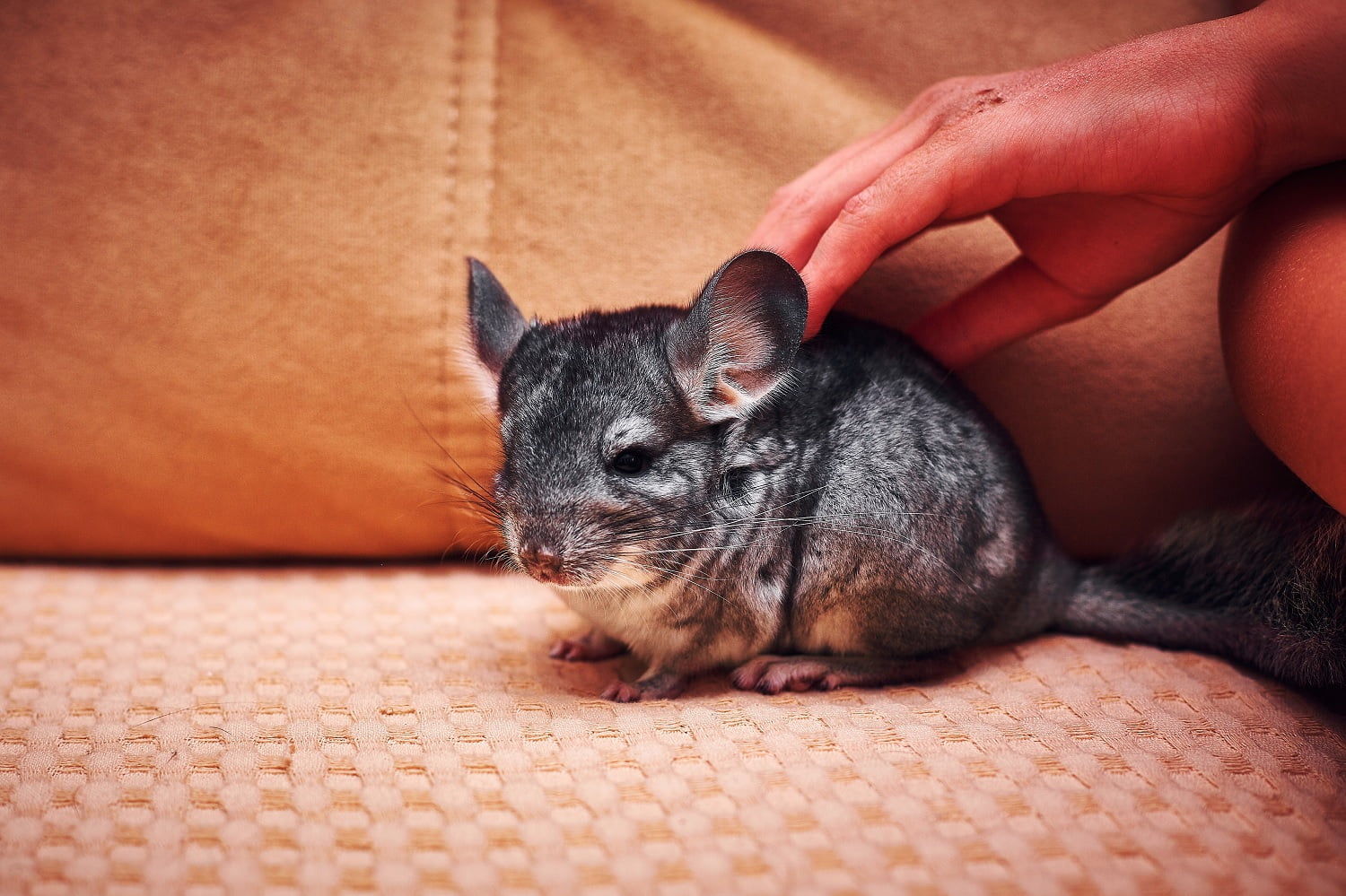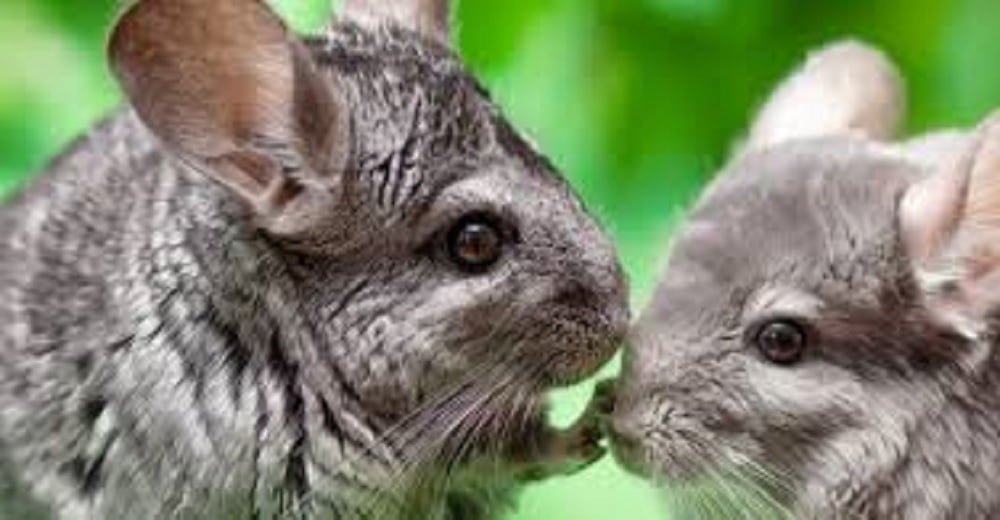Chinchillas, with their exquisite silvery fur and gentle disposition, has captured the hearts of exotic pet enthusiasts for generations. These small South American rodents are known for their endearing personalities and soft, plush coats. In this extensive blog post, we’ll embark on a journey to explore the world of chinchillas, delving into their domestication, history, biology, care, behavior, health, reproduction, and much more.
Domestication and History

Chinchillas’ remarkable history dates back to the high altitudes of the Andes Mountains in South America, where they roamed freely in countries like Peru, Bolivia, and Chile. These small, nocturnal creatures were initially hunted for their incredibly soft fur, which is considered one of the finest in the world. Unfortunately, their fur became highly sought after, leading to a dramatic decline in their wild populations.
The Fateful Introduction as Pets
Chinchillas were introduced as pets in the early 20th century, primarily in the United States. This shift in their fate helped establish domesticated populations and played a crucial role in saving the species from the brink of extinction. Today, they are cherished as beloved pets worldwide.
Biology and Characteristics
Size and Appearance
Adult chinchillas typically weigh between 1.5 to 2 pounds (0.68 to 0.91 kg) and measure around 9 to 15 inches (23 to 38 cm) in length, excluding their bushy tails. Their large, round eyes and furry ears give them an incredibly adorable and charismatic appearance.
Fur and Color Varieties
Chinchillas boasts a dense, velvety fur coat that is incredibly soft to the touch. Their fur comes in various colors and patterns, including the most common standard gray, beige, ebony, violet, and sapphire. These different colors are the result of careful breeding and genetic variation.
Social Behavior and Temperament
Chinchillas are inherently social animals, and their interactions with each other are fascinating to observe. They engage in a variety of behaviors, from grooming and play to vocalizations.
Chinchillas’ Social Needs
Chinchillas thrive on companionship, and it’s recommended to keep them in pairs or small groups. Loneliness can lead to stress and behavioral problems, so it’s essential to provide them with social interactions.
Personality Traits
Chinchillas are known for their friendly and inquisitive nature. While they may be shy at first, they can form strong bonds with their human caregivers. They are typically gentle and have an even temperament.
Diet and Nutrition
Proper nutrition is key to maintaining the health and longevity of pet chinchillas. Their diet primarily consists of:
Chinchilla Pellets:

High-quality chinchilla pellets provide the essential nutrients they need. It’s important to select pellets specifically formulated for chinchillas.
Fresh Hay:

Unlimited access to fresh hay, such as Timothy hay, should be provided for dental health and fiber.
Treats:

Limited treats can be offered, such as a small piece of apple or a raisin, but should not constitute more than 5% of their diet.
Habitat and Cage Setup

A spacious and well-equipped cage is essential for chinchilla well-being. Chinchillas require an environment that promotes exercise and mental stimulation:
Cage Size:
A multi-level cage with platforms is ideal to provide room for play and exploration.
Chew Toys:
Chinchillas have continuously growing teeth, so providing safe chew toys helps maintain their dental health.
Dust Baths:
Dust baths are a must for chinchillas to keep their fur clean and free of excess oils.
Temperature and Environment
Chinchillas are highly sensitive to heat and humidity. Their ideal temperature range is between 60 to 70 degrees Fahrenheit (15 to 21 degrees Celsius). It’s crucial to keep their environment cool and dry.
Grooming and Fur Care
Chinchillas have dense fur that requires regular grooming to prevent matting and overheating. Providing dust baths for them to roll in helps maintain their fur’s cleanliness and health.
Health Considerations
Maintaining the health of pet chinchillas involves monitoring their weight, fur, and overall behavior. Any signs of illness should be promptly addressed by a veterinarian experienced in chinchilla care.
Reproduction and Development
Chinchillas have a relatively long gestation period of approximately 111 days. They typically give birth to one or two kits, which are born fully furred and with their eyes open. Chinchilla kits are incredibly cute and grow rapidly.
Intelligence and Learning
Chinchillas are known for their intelligence and ability to learn. They can be trained to perform various tricks and behaviors through positive reinforcement methods.
Sleep Patterns
Being naturally nocturnal animals, chinchillas are most active during the evening and night. They require a quiet and dark environment during their daytime sleep hours.
Taxonomy and Evolution
Chinchillas belong to the family Chinchillidae, and their closest relatives are the viscachas. These rodents share a common evolutionary lineage that has adapted to the harsh Andean mountain environment.
Conclusion
Chinchillas are unique and charming exotic pets. With their soft fur, gentle disposition, and engaging personalities, they make wonderful companions for those willing to provide the care and attention they need. Whether you’re an experienced exotic pet owner or new to the world of chinchillas, you’re sure to be enchanted by these fascinating silvery critters. Their rich history, biology, and captivating behavior make them a captivating addition to the world of exotic pet ownership.


